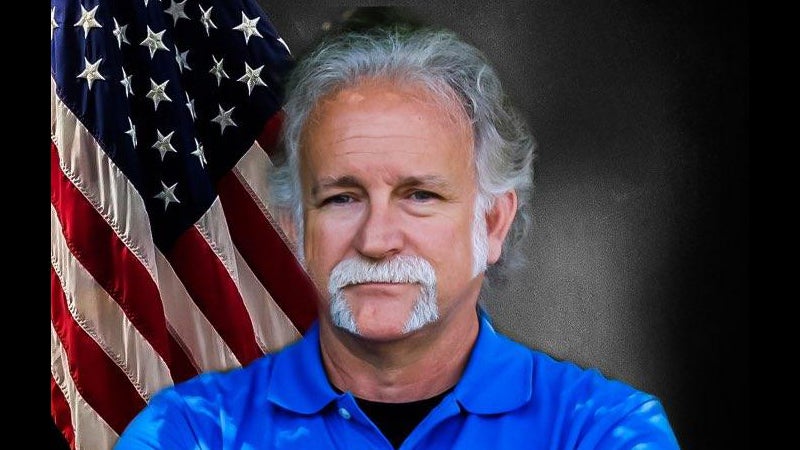Wooster proposes changes to ‘sexually explicit’ School Board policy
Published 6:22 pm Tuesday, December 13, 2022

- Mark Wooster
Newly elected Isle of Wight County School Board member Mark Wooster has proposed what he’s termed a “more comprehensive” version of a state-mandated policy intended to allow parents to opt their children out of “sexually explicit” instructional materials.
Virginia’s General Assembly passed legislation earlier this year requiring school boards to adopt policies by Jan. 1 that are “consistent with” or “more comprehensive than” new Virginia Department of Education model policies pertaining to sexually explicit material.
The law defines “sexually explicit” to mean any “lewd exhibition of nudity” or any image or description of sexual excitement, sexual conduct, sadomasochistic abuse, coprophilia, urophilia, bestiality or fetishism, and the term “instructional material” as referring to any content “used by one or more students for an educational purpose.”
The model policies, which the VDOE published in August, require schools to provide parents at least 30 days’ notice ahead of using any sexually explicit materials, and advise them of their rights to review the material and/or have their child be given an alternative assignment using non-explicit material.
The School Board voted in November, before Wooster took office, to incorporate the model policy language into an existing policy designated IIA.
Wooster’s proposed changes would make the policy apply not only to sexually explicit materials but content deemed “inherently divisive.” Learning materials falling under either category would be “prohibited from use” in student curriculum, Wooster’s draft states.
Wooster and newly elected School Board member Jason Maresh, both of whom won their seats in the Nov. 8 election, had campaigned for their positions on platforms of opposition to what they termed “divisive” and “sexually explicit” learning materials. In 2021, a group of county residents – Maresh among them – began accusing School Board members and school administrators of using equity and inclusion efforts to promote tenets of Critical Race Theory, which argues laws and institutions have perpetuated inequalities among minorities.
Maresh had taken specific issue with Smithfield High School’s “Read Woke” challenge, contending in a letter last year that the social justice-themed books available at the school’s library “disparage white people as privileged, inherently racist, oppressors and victimizers.” Other parents opposed to the Read Woke challenge argued the books’ use of profanity and depictions of sex, and in some cases, rape, was inappropriate for teenagers. The pushback continued this year when parents Heidi Swartz and Candice Vande Brake unsuccessfully petitioned the School Board to remove apps containing LGBTQ-related and what Swartz termed “partisan” content from all school-issued iPads.
Wooster’s proposed changes define “inherently divisive concepts” as “any ideas in violation of Title IV and Title VI of the Civil Rights Act of 1964” including that “one race, skin color ethnicity, sex, or faith is inherently superior,” that “an individual, by virtue of his or her race, skin color, ethnicity, sex or faith, is racist, sexist, or oppressive, whether consciously or subconsciously,” that “an individual should be discriminated against or receive adverse treatment solely or partly because of his or her race, skin color, ethnicity, sex or faith,” that “members of one race, ethnicity, sex or faith cannot and should not attempt to treat others as individuals without respect to race, sex or faith,” that “an individuals moral character is inherently determined by his or her race, skin color, ethnicity, sex or faith,” that “an individual, by virtue of his or her race, skin color, ethnicity, sex or faith, bears responsibility for actions committed in the past by other members of the same race, ethnicity, sex or faith,” and that “meritocracy or traits, such as hard work ethic, are racist or sexist or were created by a particular race to oppress another race.” The definition language is taken verbatim from Gov. Glenn Youngkin’s Executive Order No. 1, which mandated an end to “inherently divisive concepts, including Critical Race Theory” in public schools.
Wooster’s draft went before the School Board for a first reading on Dec. 8 and is scheduled for a second reading and vote in January.
School Board Chairwoman Denise Tynes spoke in opposition to Wooster’s proposed changes at the Dec. 8 meeting, stating the intent of the state law was “about parent notification and parent choice.”
“If the policy is changed to completely remove or ban materials that meet this definition, you have removed parent choice; you are saying to all parents that parent choice is good for me but not for thee,” Tynes said.
Per the new sexually explicit material state law, library books would only be deemed “instructional materials” if used “for the completion of an assignment” or “as part of an academic or extracurricular education program.”
Wooster, however, argued the law gives school boards the discretion to enact “more comprehensive” policies that would “prevent or prohibit inappropriate material from being in our schools in the first place.”
“I don’t know any parent who is in favor of any type of sexually explicit material or inappropriate material being displayed,” Wooster said.
School Board member John Collick, who was elected last year after campaigning on a platform of opposition to transgender student policies and Critical Race Theory, said he agreed with Wooster.
“If we do have library books that fit that description, if we’re not allowed to remove them, I think they should be put on a back shelf somewhere and parents would need to send a note, send authorization then for the child to read that particular book,” Collick said.





